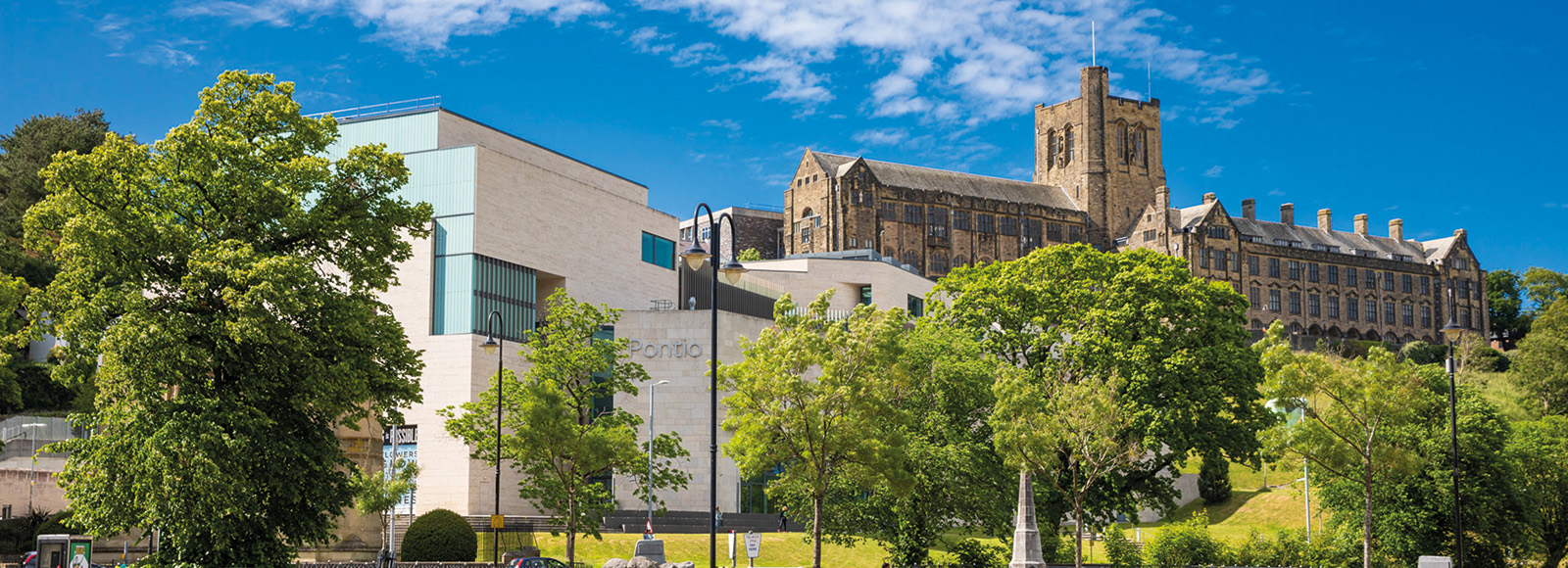- ...
Postgraduate Studentships - Search for funding opportunities.
This Sport and Exercise Science MSc aims to provide graduates with the opportunity to take a multi-disciplinary approach to their development. The degree will provide you with the skills, knowledge and flexibility of thought to develop an understanding of the physiological and psychological approaches to performance enhancement (e.g., competitive athletes and casual exercisers). It will also provide you with insights into the approaches that may be taken when working within rehabilitation settings (e.g., healthy ageing, chronic disease). It has been designed with a strong emphasis on the application of theory to professional practice.
Professional Accreditation
You’ll be able to use some of the knowledge and skills that you’ll acquire on this Sport and Exercise Science MSc to prepare for the British Association of Sport and Exercise Sciences (BASES) supervisory experience training, which is normally a pre-requisite of the Association’s professional accreditation.
BASES also organise an annual student conference. Some of our former MSc students have won prestigious awards for ‘Best Postgraduate Verbal Presentation’ and ‘Best Postgraduate Poster Presentation’ at the BASES Student Conferences. These awards are open to MSc and PhD students from all UK Universities and the fact that our students have repeatedly won awards is an indication of the excellent quality of the teaching and research training you’ll experience on our course
Due to our reputation for research excellence we attract students from all over the world and have postgraduate course leaflets available in Arabic and Chinese.
Find out more about the Sports and Exercise Sciences subject area
At least a 2.2 honours degree in a relevant subject (or equivalent).
Students with a degree from a different academic area may also be considered. Working professionals with non-graduate qualifications will be assessed on an individual basis. Please contact sport@bangor.ac.uk with any questions.
EU and Overseas students, whose first language is not English, are required to take the standardised English Language test (IELTS) before starting the course. Students who achieve a score of 6.0 or above (no individual score below 5.5) are eligible for direct entry to the course. The University offers pre-sessional language courses before courses start through ELCOS for those that need additional support reaching the required level.
For fees and funding options, please visit website to find out more
All our postgraduate programmes are designed (with further training where appropriate) to enhance the career prospects of Sport, Health and Exercise Science graduates.Career destinations of Bangor postgraduates include: the Home Country Sports Institutes, National Governing Bodies, the Olympic Medical Institute, Professional sports teams and organisations, the fitness industry, the NHS (hospitals and Primary Care Trusts), Teaching and Education (after completing a Postgraduate Certificate of Education). Further postgraduate study (ie Doctoral research) is another vocational route.
This specific Sport and Exercise Science MSc will equip you with a variety of skills to work across the broad sport and exercise sector. For example, graduates may progress to careers or further education in sport, health, exercise, education (e.g., teaching, after postgraduate training) or research (e.g., progress to PhD / Research Fellow careers). The transferable skills attained on this programme may also assist you to pursue a career in other vocations for example the armed forces, emergency services, or business.
This Sport and Exercise Science MSc aims to provide graduates with the opportunity to engage in a multi-disciplinary approach to their development. Specifically, the degree is designed to increase students’ understanding of both the physiological and psychological approaches to performance enhancement (e.g., competitive athletes and casual exercisers) and simultaneously to offer students an insight into approaches that may be taken when working within rehabilitation settings (e.g., healthy ageing, chronic disease).
The degree programme is taught through traditional lectures, interactive seminars, one-to-one tutorials, computer sessions, and laboratory practical’s. Students will therefore gain experience of working independently and in group-based settings both in the classroom and in practically driven sessions (the extent of which will depend on module choices). They will also complete a substantial period of self-study that, on the Masters degree, includes the completion of a research project or dissertation. To complement these teaching approaches, the degree also utilises a variety of assessment methods including case-reports, practical skills, the ability to communicate effectively with diverse populations, and the delivery of presentations (e.g., posters and talks).
Graduates of the degree programme will be able to show a critical scientific knowledge and understanding of the physiological, psychological, and rehabilitative principles that are involved a variety of sport and exercise settings; will demonstrate an understanding of the scientific principles and statistical procedures that underpin effective research design, data collection, and data interpretation in sport and exercise science; and will be able to illustrate how scientific ideologies can be used to design, implement, and evaluate client-based interventions in sport and exercise settings.
Graduates will also develop practical skills that might be used when collecting data for research and/or applied purposes in laboratory and field settings. They will have developed contextual awareness and problem solving when considering how scientific principles and practical interventions might be applied to sport and exercise settings, and will be able to interpret and communicate scientific data to suit the needs of the audience (e.g. clinicians or patients). They will also be able to demonstrate a range of standard key skills, including awareness of health and safety and ethical considerations.
Collectively, these approaches are designed to equip graduates with the communication and presentation skills, interactive and group skills, reflective practice skills, and numeracy and information technology skills that will allow them to demonstrate professionalism as required in the workplace.

Discover Flexibility. Discover Opportunities Nestled between North Wales’ mountains and the sea, Bangor University offers a remarkable academic exper...